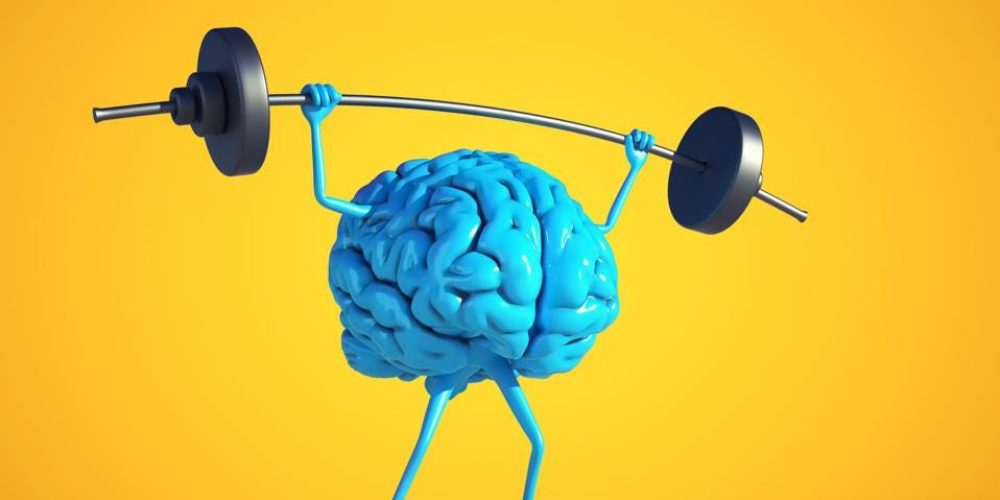Your brain health is just as important as the health of other parts of your body. We know that professional football players and boxers suffer brain damage from constant punches to the head. But research also shows that work stress causes structural changes in the brain circuitry that can cause long-term harm on the nervous system. Chronic job stress such as an abusive boss, sexual harassment, a bully coworker or a work culture that thrives on crisis, chaos and pressure are examples of stress that can cause atrophy of the brain mass and decrease in brain weight.
The 2022 Brain Health Report

It’s a no-brainer that most people, whether they work from home or in an office, are looking for ways to optimize their performance during the workday. And brain health, although rarely given a second thought, is a huge contributor to job engagement and performance. Brain health is defined by the World Health Organization as “the state of brain functioning across cognitive, sensory, social-emotional, behavioral and motor domains, allowing a person to realize their full potential over the life course, irrespective of the presence or absence of disorders.” If you’re like most people, you might not know much about your own brain health, yet it’s the boss of your mind and body. It decides how well you perform at work and how far you climb the career ladder, so your brain needs to stay healthy to keep you on top of your game. The problem is it can’t tell you what it needs, but if it could speak it would tell you what science has found that you need to do to keep it healthy.
In their 2022 Brain Health Report, Muse revealed the results of their survey of 5,000 adults between August 27 and August 30, 2022. The study found that nearly half of Americans feel overworked (44%) or burnt out (43%). Others say they feel occasionally or regularly unappreciated (71%), lacking joy (73%), or reduced satisfaction (77%). Plus, eight in 10 Americans believe their work life plays a major role in their brain health. Reasons for declining brain health in the year of the study in the order of frequency were attributed to increased stress (47%), poor sleep (39%), less social interaction due to Covid-19 (37%) and normal aging (35%).
Six areas of brain health were assessed from respondents: memory, focus, sleep, mood, productivity and creativity. Respondents rank memory as the most important aspect of brain health, although sleep was the biggest struggle. GenZers report the lowest brain health, while Boomers have the highest. Greater brain health is linked to healthy eating (especially a healthy breakfast), exercise and leisure activities multiple times a week. On the other hand, the findings show that thoughts of quiet quitting negatively impact brain health, while striving for a promotion or raise positively impact brain health.
Four Major Strategies To Boost Brain Health
Overall, the workers with the highest brain health in the Muse report are making four minor lifestyle changes during the workday:
- Taking Physical Breaks to enhance sleep, focus, memory, creativity and productivity
- Meditating During the Workday to improve memory, sleep, mood and creativity
- Taking Mental Breaks to improve sleep and mood
- Socializing With Coworkers to enhance productivity
These four activities throughout the workday made the greatest impact on the brain health of American workers, especially when compared to sweeping changes such as quitting (+.57%) or relocating (3.86%), showcasing that small changes or micro- adjustments can make big differences in the well-being among the American workforce. The study concluded that in order to stay fulfilled at work and to preserve employees’ brain health, the non-linear workday may be the best option.
A Brain Health Plan

Don’t wait for your company to decide what’s best for you brain. You’re in control of your mental and physical health, not your employer. Evaluate your job and life and decide for yourself what’s reasonable to keep your brain healthy under work stress. Here are ten science-backed actions you can use as scaffolding for your own brain health plan. How many can you add to your work regimen?
- Meditation limits cortisol levels by 25%, according to research, and it reduces mind wandering and mistakes, keeping you on task at work.
- Four Brain foods promote mindful productivity and career health: protein, Omega-3 fatty acids, B vitamins and Vitamin D.
- Regular exercise such as brisk walking re-calibrates a fatigued brain and reduces your risk of developing anxiety by almost 60%.
- Positive self-talk can stop catastrophic mind chatter that causes work stress and keep you calm in stressful situations.
- Sleep deprivation leads to brain stress, and ample sleep is restorative for your brain health.
- Microbreaks—short breaks of five minutes—throughout the workday mitigate brain fatigue and keep your brain rested and clear.
- Mindful abdominal breathing keeps your brain sharp and focused in the present moment when job stress steals your breath away.
- A positive outlook gives you better memory at work. Plus, looking for the opportunity in the problem helps you scale the career ladder faster and farther than pessimism, according to research.
- Brain scans of people who spend time outdoors show their prefrontal cortex has more gray matter and a stronger ability to think clearly and self-regulate.
- Social engagement mitigates cognitive decline and enhances gray matter in the brain. So it’s important to avoid working in isolation and maintain social connections with coworkers to keep your brain active and healthy.


